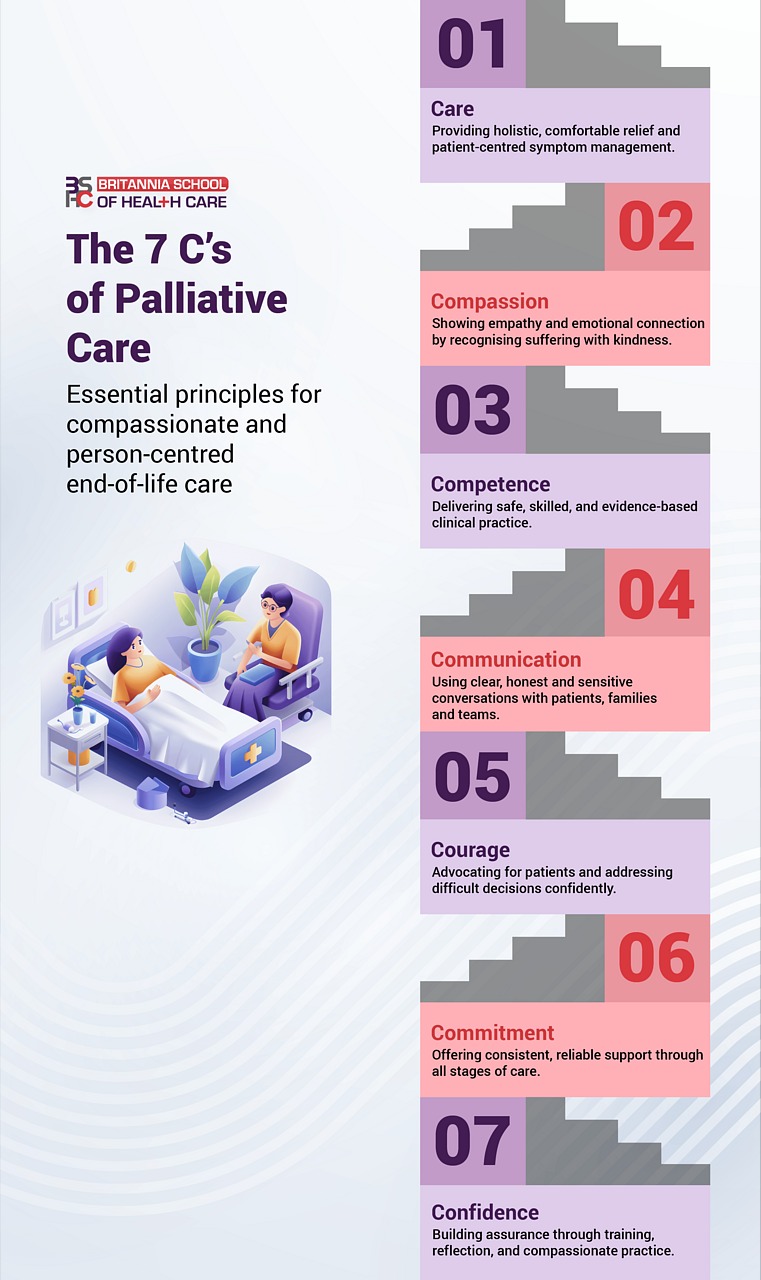The settings for adult care relate quite often to emotional and complex end of life situations; strong counselling skills, in this respect, are not just desirable but essential among care professionals. These skills enable staff to offer support that is empathetic, including the provision of active listening and sensitive communication, at the final stages of individuals’ lives.
EOL care is a highly sensitive yet crucial area of healthcare in which comfort, dignity, and support are afforded to those coming to the end of their lives. While medical interventions play an important role, the emotional, psychological, and spiritual needs of the patients and their families often require different kinds of expertise. This is where counselling skills become indispensable, adding quality to care and building a compassionate framework for navigating one of life’s most difficult transitions.
This blog will inform you on the role of counselling skills in End of life care which can be a source not only of solace but also of connection and meaning.
What Is End of life Care Counselling?
End of life care counselling usually is not about long-term, formal psychological therapy. Rather, it is the deliberate use of core counselling skills by caregivers to support the emotional and psychological well-being of the patient. It is a supportive service which helps the patients and their families comprehend the complex emotions and the practical aspects of dying, death, and bereavement.
Meaning of End of life Care:
End of life care refers to a comprehensive and multidisciplinary treatment programme that supports patients in the terminal phase of their life, usually the last year, months, or weeks. The dominant aim is not to heal but to guarantee the greatest quality of life possible so that the person can live as freely and comfortably as possible until they die.
The 7 C’s of Palliative Care
Following are the seven principles that represent the ethical and practical ideals, which are the base for quality End of life care:
- Care: The deliberate provision of a comprehensive and comfortable relief of the patient’s symptoms.
- Compassion: The empathetic bond between people, which recognises shared suffering and reacts with love and care.
- Competence: The use of skillful, evidence-based and safe clinical practice.
- Communication: The engagement in honest, clear, and sensitive conversations with everyone involved.
- Courage: The ability to endure suffering, presence it, discuss it, and patient advocate.
- Commitment: The willingness to be consistent, reliable, and unbroken in offering support.
- Confidence: The assurance gained through training and self-examination that the care can be given effectively and is impactful.
Counselling skills serve as the “engine” which powers several of these principles, particularly Communication, Compassion, and Courage.

What Counselling Strategies Will Help You Most When Dealing with Dying Patients?
Counselling skills are not the exclusive domain of professional counsellors, but rather fundamental interpersonal skills that allow carers to interact profoundly and effectively with those under their care. Providing emotional support to a dying person is a difficult task that demands the caregiver to be highly sensitive to their own emotions and to have a good self-awareness. Among different counsellings methods, the following ones are highly effective:
👂 Active Listening:
People who are going to die sometimes hold back their feelings in order not to hurt their relatives. The caregiver who sympathises and as well as listens attentively, will give the patients the opportunity to let their feelings out in a safe manner, which can relieve their nervousness and bring them inner peace.
🤝 Unconditional Positive Regard:
One of the best ways to help patients come to terms with their lives and be at peace is to encourage them to think of their accomplishments, connections with others, and what they have learned. This can be done through writing, recording, or simply sharing.
💬 Effective Communication Skills:
Discussions about subjects like choosing preferred medical interventions, funeral arrangements, or saying goodbye can cause pain. Co-ordination skills equip these people with the necessary tools to handle these talks in a kind but honest, emotionally sensitive manner.
What Is Important to Remember When Providing Care at the End of Life?
For caregivers, it is most important that these principles revolve around:
- Individuality is Paramount: The life journey of each person is different, influenced by their personality, culture, beliefs, and past experiences.
- Dignity is Non-Negotiable: This includes respect for privacy, bodily autonomy, and the individual’s being of a universal kind.
- Communication is a Clinical Skill: Without doubt, communication that is clear and full of understanding is as important as any medication in lessening the feeling of fear and establishing the trust.
- Self-Care is an Ethical Imperative: The work given is quite emotionally challenging. To keep away from burnout and compassion fatigue which enable a continuous provision of high-quality care, regular reflection, clinical supervision, and personal support are necessary.
Final Thoughts on the Importance of Counselling Skills in End of Life Care
End of life care is not just about the extension of life or the mitigation of pain; it’s about dignified, human-centered connection at a time when many needs physical, emotional, spiritual, and existential come to the fore. Counselling skills provide a practical, compassionate framework that any adult-care setting can adopt to honor those needs. When health care teams listen deeply, speak honestly, and walk alongside patients and families, they transform fear into clarity, isolation into belonging, and uncertainty into guided care. Ultimately, it will not only be a question of enhancing emotional wellbeing but also of upholding those values of respect and person-centred support that each individual deserves.

